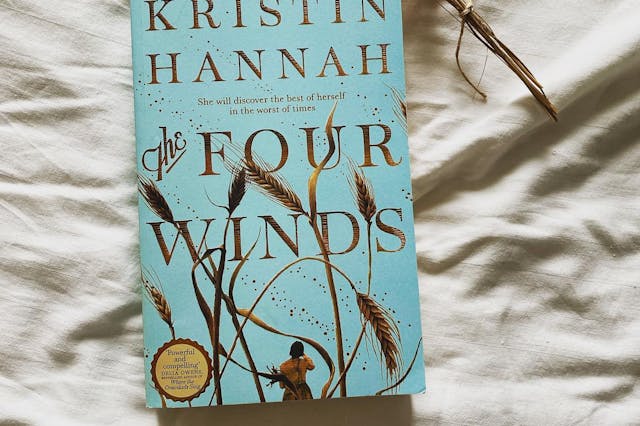
The Four Winds
This is my second book from Hannah, technically, but the first one that I finished! It had a slow start but around the 60 page mark I got more into the story.
Hannah does a good job of describing the atmosphere of the time period, for the most part. The novel taught me more about the Dust Bowl than I ever learned at school! We were taught about the dust storms and how it made living in the region dangerous, but I never learned just how intertwined the Dust Bowl and Great Depression were.
We read the novel through the perspectives of Elsa and her daughter Loreda. I really enjoyed the switching perspectives but they often felt repetitive and didn’t add many new things in each chapter. I didn’t love the characters, they felt a bit flat.
Themes of the book still felt very relevant to issues we still face today like the treatment of migrant workers, the fight for worker’s rights, the lack of social support, and environmental disasters.
I think another reviewer mentioned the lack of historical accuracy surrounding the striking events as Hannah created a fictional event to center white migrant farmers when a very real event took place around the same time involving Mexican migrant workers. It also became an issue as it was very white washed, I understand it’s historical fiction and you can’t fit everything into one book-but at 450 pages and repetitive dialogue, you could at least acknowledge certain aspects.
The talk about the Martinelli’s land (and Texas in general) is talked about in a “manifest destiny” sort of way. Elsa’s grandfather “fought to get this land”…failing to mention the Native Americans and Mexicans it was taken from. Hannah chose to focus on an ugly part of history while conveniently taking out the marginalized communities mainly affected. And the constant repetitiveness of “this isn’t who we are in America.” YES IT IS! The constant pushing of this narrative when it is America and always has been, just not for middle class white people up until the Great Depression, was frustrating and inaccurate. To have her characters constantly saying these things, ignoring history, and comparing themselves to slaves?! Yikes...
I was loving this book and feeling like it would be at least 4 stars, right up until this. Bare minimum was for Hannah to have addressed this history that she omitted in her afterword and explain why she did not include it, but instead she used that space to glorify and praise the white pioneers who reaped the benefits of genocide.